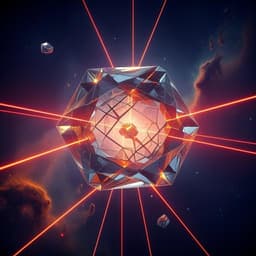
Computer Science
Experimental demonstration of quantum advantage for NP verification with limited information
F. Centrone, N. Kumar, et al.
This groundbreaking research by Federico Centrone, Niraj Kumar, Eleni Diamanti, and Iordanis Kerenidis showcases an experimental demonstration of quantum computational advantage in verifying NP-complete problems using a linear optical implementation. The findings suggest a stark contrast in efficiency compared to classical computing, which hints at transformative potential in server-client quantum computing.
Related Publications
Explore these studies to deepen your understanding of the subject.







